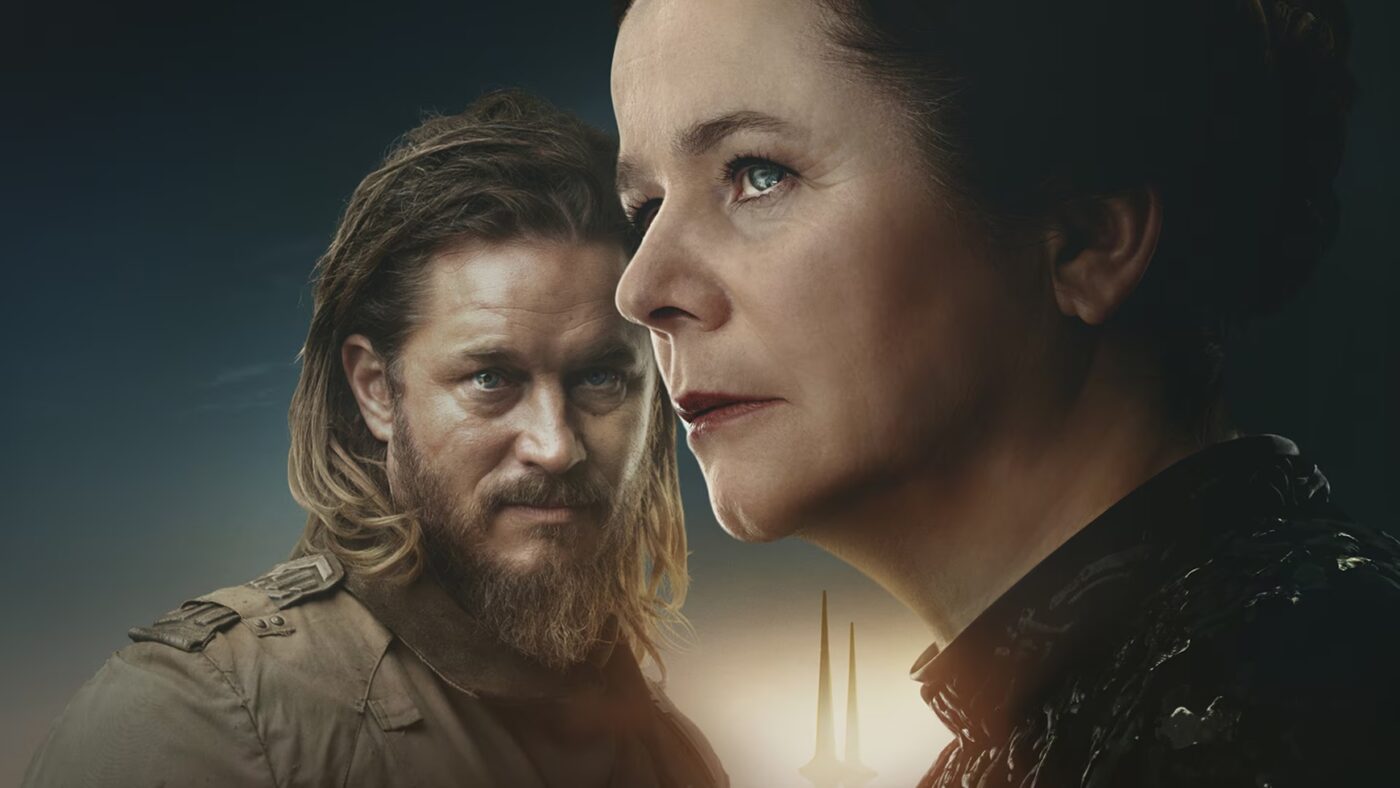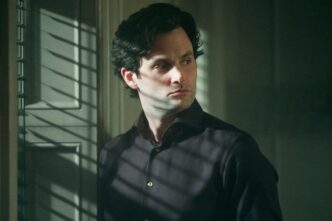A Sophomore Stab at a Dune Show that Doesn't Entirely Work
Summary
Dune Prophecy: Season One explores the origins of the Bene Gesserit, delving into power struggles, moral ambiguity, and political intrigue, with standout performances and immersive world-building, despite pacing issues and unresolved storylines setting up future seasons.
Overall
-
Plot
-
Narrative
-
Acting
-
Characterization
-
Visuals
-
Pacing
When the Bene Gesserit were first introduced to readers in the wider Dune universe, they existed in a realm of mystery. They had obscure prophecies, supreme control over their bodies, and a knack for nudging entire dynasties toward desired outcomes. In Dune Prophecy, the lens shifts squarely onto these women and explores their beginnings in greater detail. The series aims to show how they emerged as one of the most powerful factions in the Imperium (Dune), yet it surrenders some of the awe that once surrounded them and struggles to balance character-driven storytelling with intricate world-building. Our Dune Prophecy review examines whether the show works as a Dune show, and also if it’s a good show by itself.
Set in the aftermath of the Butlerian Jihad, which banished sentient machines from humanity, the show follows the Bene Gesserit in their early years. Their mission remains secretive yet bold. The order, which started as a group of women honing their physical and mental abilities to preserve humanity’s best traits, now stands at a crossroads. Two sisters from House Harkonnen, Valya and Tula, serve as the focal point of the show. The series frames their ambition as a spark that can either ignite the Sisterhood’s rise or consume it in flames of hubris. From the moment viewers see Valya and Tula share the screen, their stark differences hint at deeper conflicts that gradually shape the Bene Gesserit’s future direction.
Valya, played by Emily Watson, projects a calm intensity. She is methodical, strategic, and more reserved than her sister. Beneath her controlled demeanor lies an undercurrent of personal loss and fear that pushes her toward extreme actions to safeguard the Sisterhood. Tula, portrayed by Olivia Williams, matches Valya’s determination with emotional fervor. She channels anger and passion into direct confrontations, forcing her peers—and sometimes her enemies—to confront the unspoken truths they prefer to ignore. Their dynamic forms the backbone of the season, illustrating how even those aligned with a common cause can disagree over methods and outcomes.
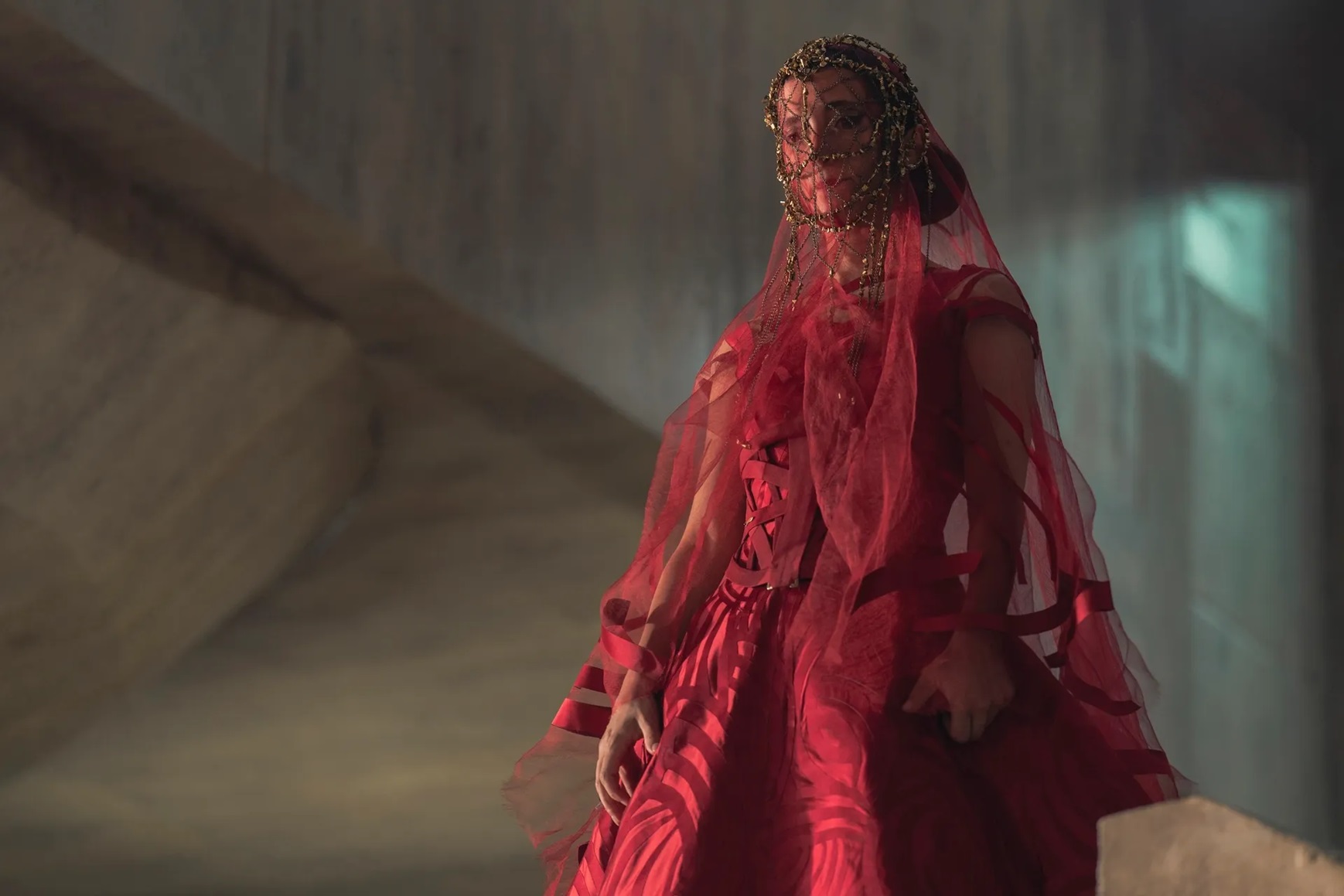
Their plan involves placing a Bene Gesserit on the Imperial throne. To them, this is more than a power grab; it is a calculated effort to shape humanity’s path. Should the Sisterhood guide events from behind the curtain, or should it steer the Imperium from a position of direct authority? The plot explores these questions but sometimes rushes through pivotal moments that need more development. Although the premise provides a grand stage, the show often feels overwhelmed by its numerous threads.
Mark Strong’s Emperor Javicco Corrino stands at the center of political turmoil. His role is to hold the Imperium together in the face of external threats and emerging factions that want to disrupt the established order. Javicco’s authority begins to slip as suspicious alliances and rebellious voices undermine his rule. In the scenes where he tries to maintain his grip on power, the tension is palpable, especially when he confronts the possibility that the Sisterhood could pose a greater challenge than any conventional rebellion. Strong’s performance conveys the Emperor’s vulnerability beneath his formal bearing, yet the season moves so quickly that some of his best moments feel truncated.
One of the show’s notable strengths lies in its setting and atmosphere. The production design, including architectural details and costume choices, immerses viewers in a universe on the edge of transformation. Wallach IX, where the Bene Gesserit train, is suitably mysterious, blending ancient tradition with advanced technology that reflects the order’s dual identity. Scenes in Javicco’s court highlight the grandeur expected of Imperial authority, while smaller, out-of-the-way locales reveal a galaxy still healing from its war against thinking machines. These sets allow for layered storytelling even when the script does not delve into each nuance.
However, the season only has six episodes, and that limited structure results in a narrative that often feels hurried. The finale, titled “The High-Handed Enemy,” demonstrates this imbalance. It attempts to tie up major storylines while hinting at a second season, cramming a great deal into a single episode. Consequently, several subplots either remain unresolved or end abruptly. Viewers reading our Dune Prophecy review who want closure for certain characters may feel frustration, although they might still be intrigued by the promise of upcoming conflicts.
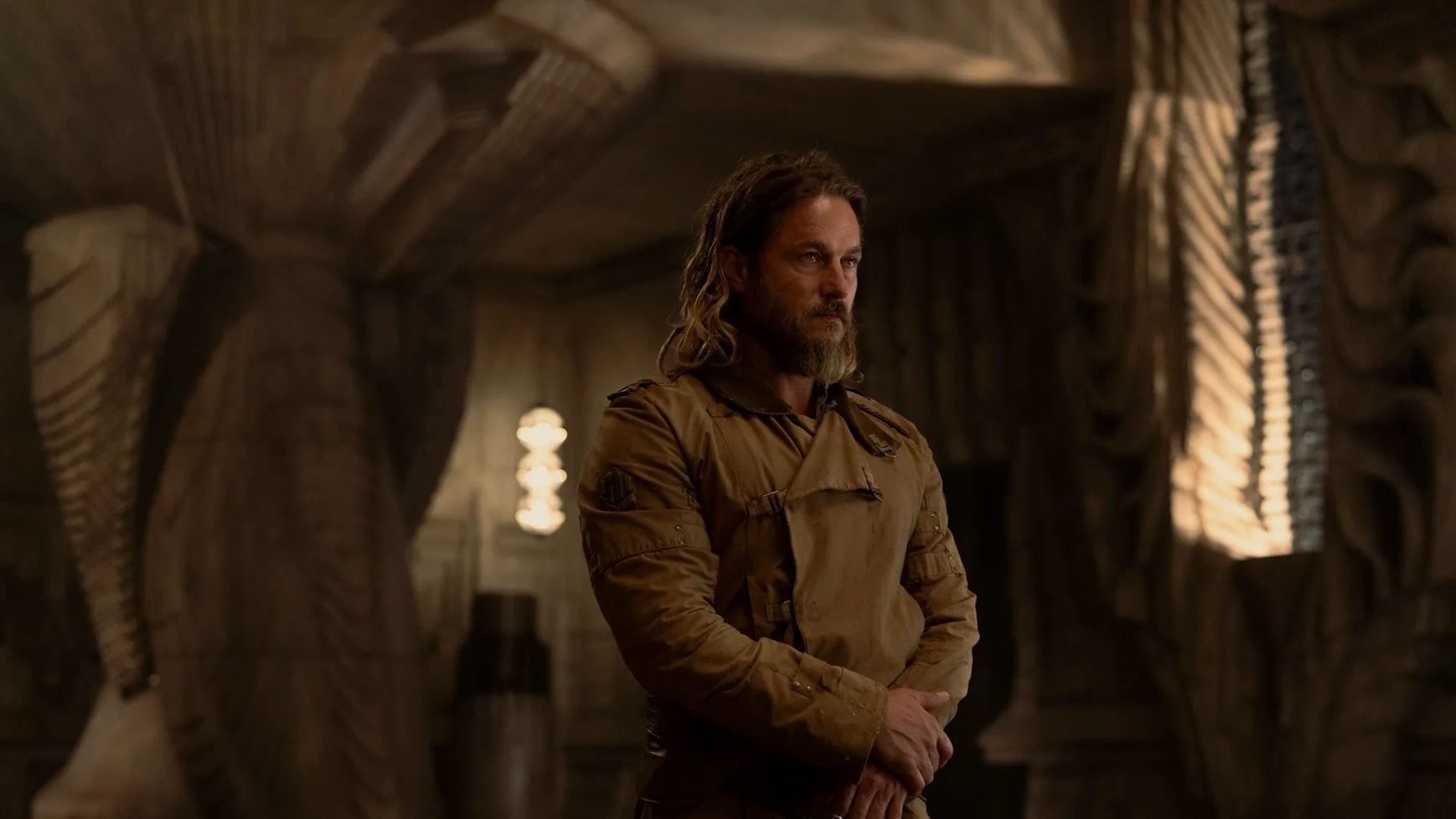
Travis Fimmel’s Desmond Hart represents a character who reflects the show’s potential but is not given enough time. He has abilities that do not align neatly with known factions, and his backstory hints at secret manipulations. The series occasionally drops clues about his mysterious past, yet it never lingers long enough to uncover the extent of his history or motivations. By the time the finale arrives, the truth behind his abilities—or whoever caused them—feels more like a last-minute question than the culmination of a well-paced arc. This mirrors the show’s broader approach, in which big reveals and hints of conspiracies appear but rarely earn a complete resolution.
Emily Watson’s portrayal of Valya serves as a grounding presence. She adds subtlety to the role, capturing the uneasy alliance between personal desire and loyalty to the Sisterhood. Valya’s moral ambiguity becomes apparent as she balances the cost of her plan. Her willingness to make sacrifices, whether they involve others or herself, underscores how high the stakes truly are. Watson’s performance gives Valya depth without rendering her either completely ruthless or entirely benevolent. Each of Valya’s decisions feels loaded with the potential to shift the Imperium’s future.
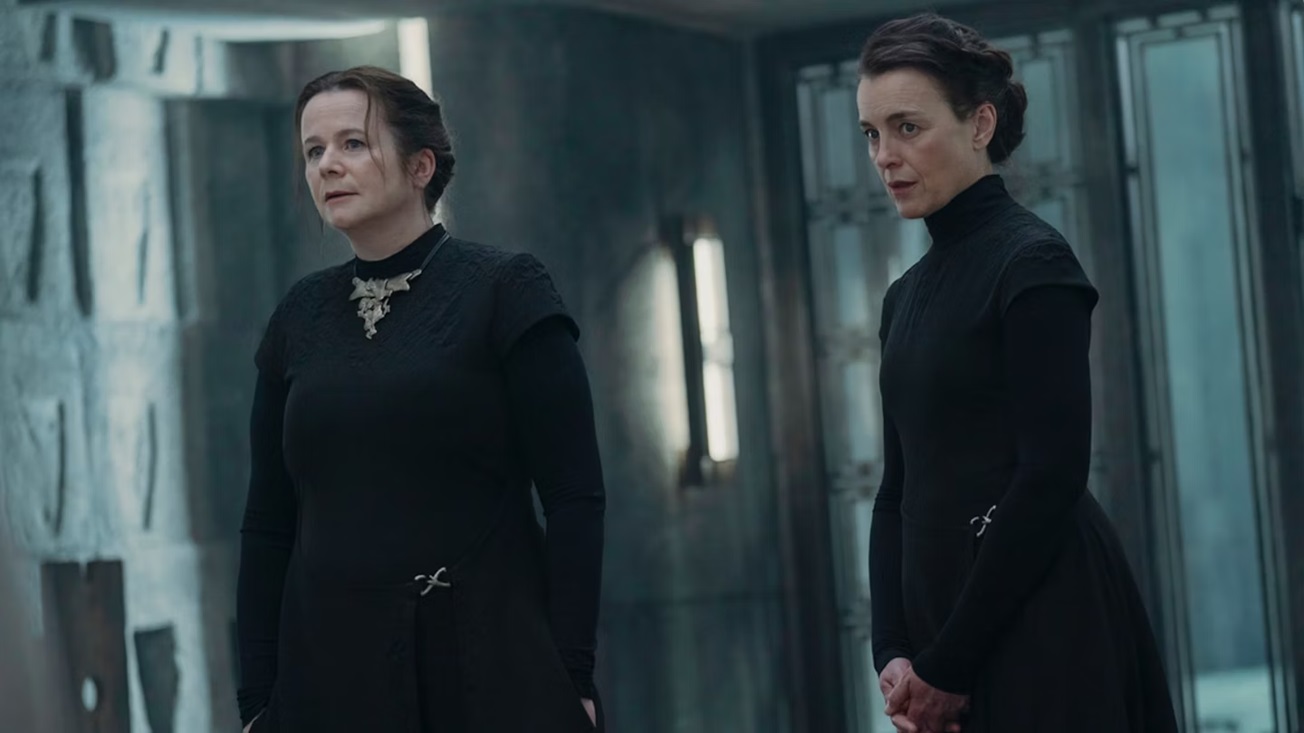
Olivia Williams infuses Tula with a brash intensity, counterbalancing Valya’s measured approach. She confronts Valya, seizes her own moments of leadership, and drives the plot forward when it risks stalling. Though Tula’s impulsiveness clashes with Valya’s caution, both women are firmly invested in the Bene Gesserit’s fate. Their disputes stem less from conflicting end goals than from differing values. In their most effective scenes, the show reveals how personal traumas and overarching ideologies can turn close allies into uneasy rivals.
Another significant figure is the Emperor, and Mark Strong plays Javicco Corrino with a mix of dignity and frustration. He manages to humanize Javicco even when the Emperor employs oppressive measures. In one moment, he exhibits regal confidence worthy of an absolute monarch; in the next, he grapples with forces beyond his control. This duality is compelling. It underscores that even the head of the Imperium cannot always enforce his will, particularly when factions like the Sisterhood operate with hidden agendas. Sadly, the season’s rapid pace often prevents the thorough exploration of Javicco’s vulnerability and change.
Thematically, the show revolves around ambition, sacrifice, and the weight of knowledge. These concerns tie back to Frank Herbert’s original works, which focused on more than just desert planets and melange. They delved into the interplay of power, prophecy, and human nature. Dune Prophecy captures some of that thematic depth by casting the Bene Gesserit as protectors of humanity’s progress and manipulators who believe the ends justify the means. Throughout the season, various characters debate whether true freedom can survive when a secretive group guides humanity’s evolution.
A high point is the depiction of the Voice, a Bene Gesserit technique that compels obedience with carefully tuned speech. Scenes involving the Voice remind viewers why the Sisterhood’s name carries such weight. When used well, the Voice unsettles viewers as it shows how a single command can override free will. Such moments are among the most striking this season, underscoring the order’s capacity to influence events without deploying armies or massive weapons.
Despite these successes, the show’s tendency to tease the future may prove vexing for viewers who want more resolution. Cliffhangers and withheld information can heighten anticipation, but Dune Prophecy occasionally seems to keep too much back, expecting audiences to wait for a second season. This tactic can deter some from fully committing to the series if they feel the current arc lacks closure. Although first seasons often leave open threads, the sheer number of unanswered questions might test even the patience of devoted fans.
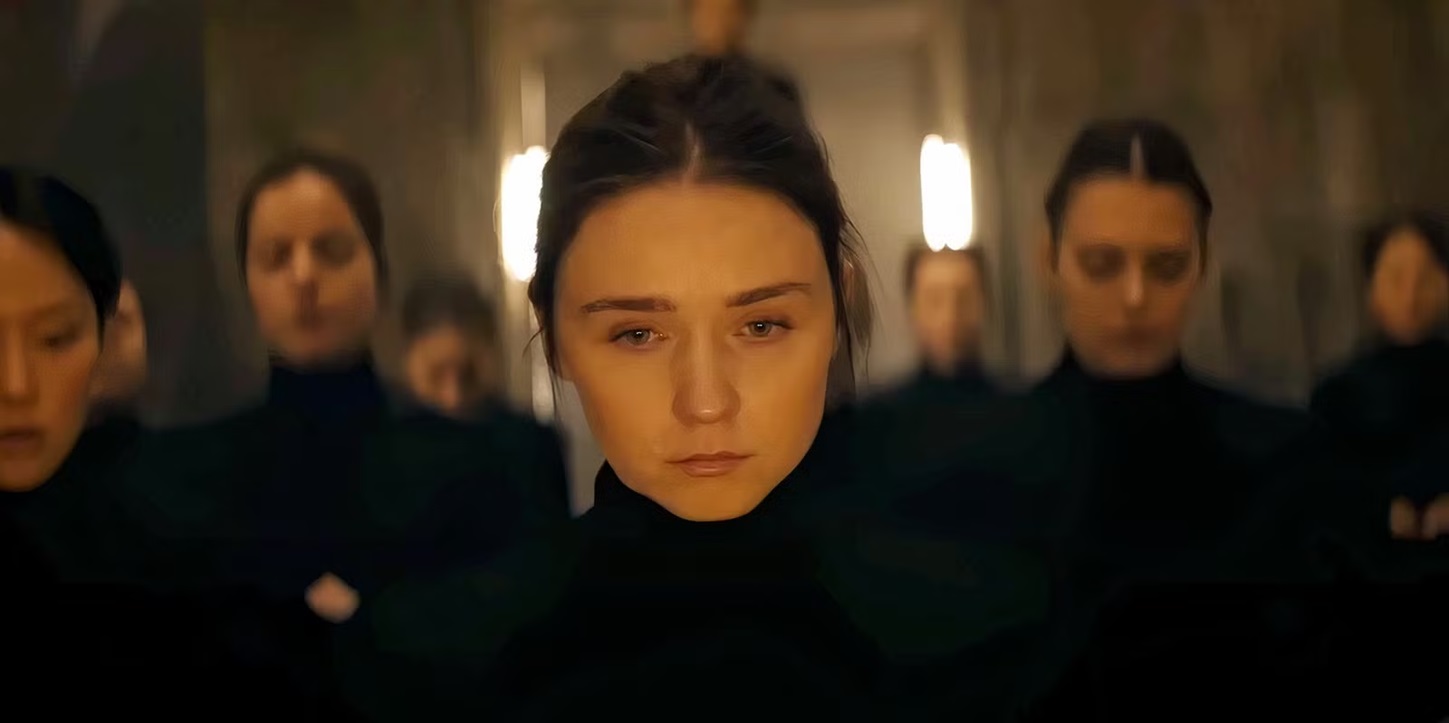
The same is true of characters who appear briefly, such as Constantine, played by Josh Heuston. He shows potential for involvement in the Sisterhood’s activities or Imperial politics but vanishes from the narrative just as his role grows intriguing. The show hints that his disappearance may lead to major revelations later, yet his sudden absence reads as an oversight. A smoother integration of his storyline could have heightened the suspense rather than creating a dangling plot point.
Nevertheless, our Dune Prophecy review agrees that the production design and cinematography remain exceptional. The costumes balance futuristic elements with timeless silhouettes, fitting a society in which arcane rites coexist with advanced technology. The Bene Gesserit compound feels part monastery, part fortress, exuding both austerity and menace. Meanwhile, the Emperor’s chambers project opulence tinged with paranoia, reflecting a ruler who senses danger in every corridor. These visual details solidify the show’s sense of place, even when the script rushes.
Science fiction often relies on such immersive design, and Dune Prophecy is no exception. Music adds another layer to the overall mood. The score incorporates understated motifs and ominous undertones that emphasize the Bene Gesserit’s secrecy. Whether the sisters plot in hushed voices or stride through Imperial halls, the music amplifies the tension lurking beneath each exchange. Combined with the show’s atmospheric sets, this emphasis on tone and ambience ensures that Dune Prophecy remains aesthetically cohesive, despite occasional narrative missteps.
In the end, Dune Prophecy: Season One merges ambition with uneven execution. It enhances Dune lore by giving the Sisterhood a stage to showcase its origins and power. Yet it also employs a framework that sacrifices depth for pacing. For longtime enthusiasts of Herbert’s saga, the show offers a fresh look at the Bene Gesserit’s backstory, shedding light on how they gained such a pivotal role in later events. For newcomers, however, the dense lore and wide cast could feel overwhelming, especially without a more self-contained storyline to anchor them.
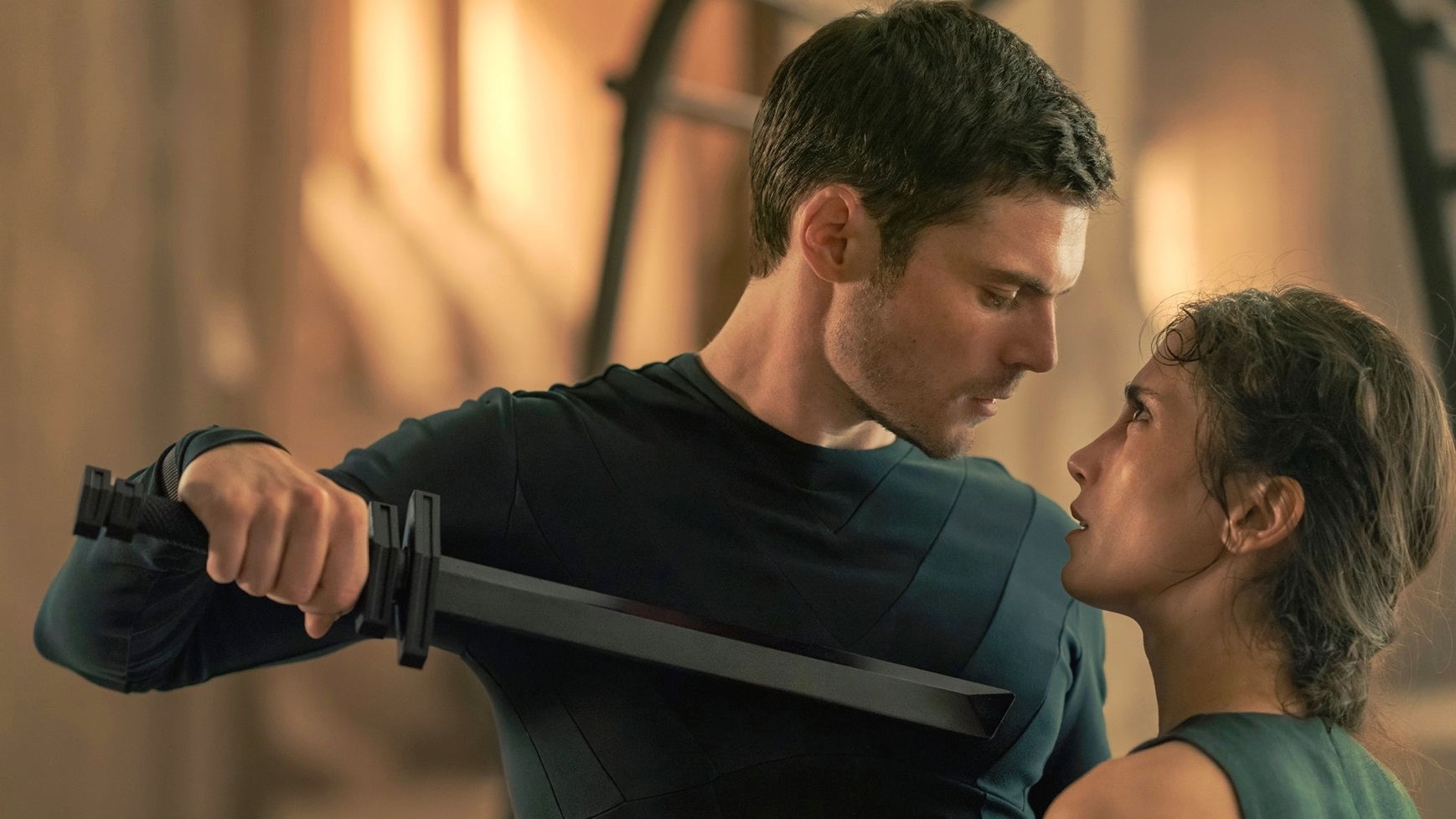
Despite its flaws, our Dune Prophecy review agrees that the season teases enough to spark curiosity about the possibilities in a second chapter. If the writers are granted the space to refine the show’s pacing, they might give major players like Desmond Hart and Constantine the opportunity to develop naturally. The same applies to Emperor Javicco, whose downfall in the finale creates a power vacuum that multiple factions could exploit. This shift raises questions about the longevity of the Sisterhood’s plan to place one of their own on the throne.
The season’s final note involves a blend of triumph, defeat, and the realization that the Sisterhood’s fate is far from decided. Although the six episodes try to close certain loops, many questions remain unanswered. While some viewers might grow impatient, others will relish the prospect of future expansions within this universe. The narrative’s open-ended nature indicates a willingness to reshape Dune’s vast setting, meaning that season two could dig more deeply into character arcs and the show’s unresolved enigmas.
By holding back on definitive conclusions, Dune Prophecy captures an aspect of Frank Herbert’s approach: in the Dune universe, no victory comes without a cost, and every success sparks a chain reaction of consequences. Although the Sisterhood’s tactics can appear foolproof when they use the Voice or scheme from the shadows, the Imperium is in constant flux, and any short-term gain may later become a disadvantage. That tension sits at the heart of Dune and surfaces in the series, even when the storytelling feels disjointed.
Performances remain its saving grace. Emily Watson and Olivia Williams craft a believable relationship between the Harkonnen sisters, and Mark Strong makes Emperor Javicco intriguing despite limited material. Travis Fimmel’s Desmond Hart adds mystery that begs further exploration, and the supporting cast suggests a web of personalities ready to unfold their hidden loyalties and objectives. These elements create a sturdy foundation that a second season could potentially elevate into a more cohesive drama, provided it is given the chance.
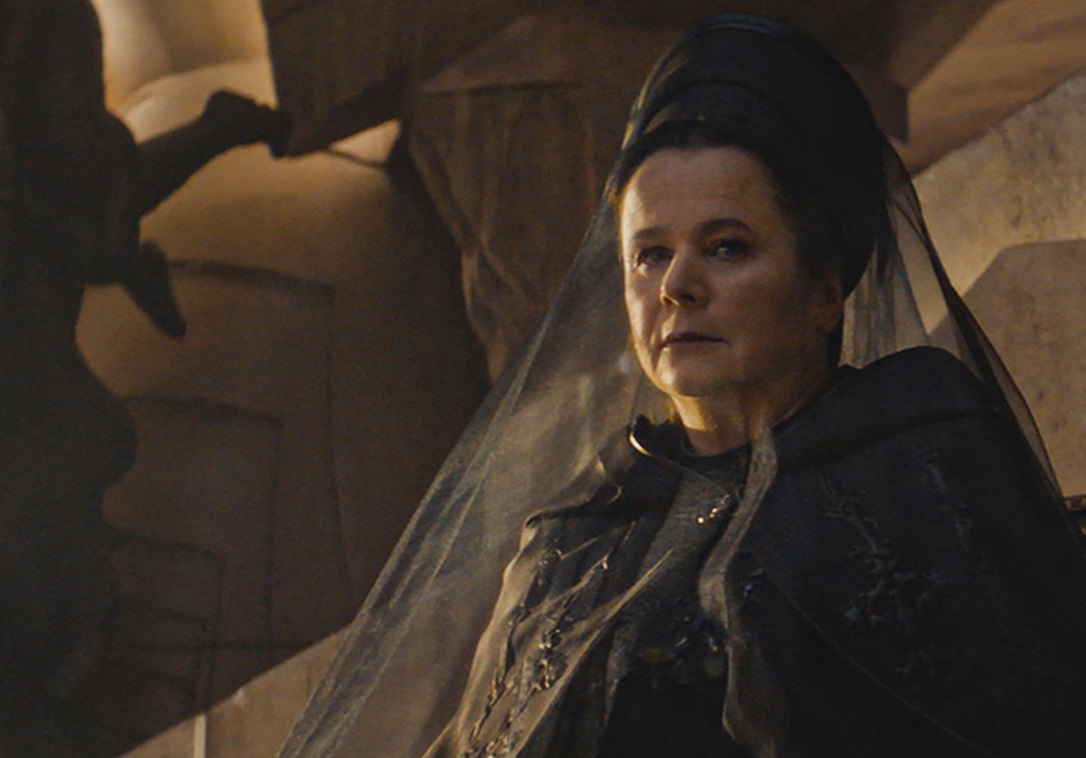
A key question is whether audiences will remain invested. Those drawn to the intricacies of Dune’s political and philosophical terrain might stay on board, hoping to see the Bene Gesserit fully establish themselves. Others might lose interest if the show fails to supply enough immediate payoffs. Both reactions hold merit, given that viewer expectations differ widely: some want discrete arcs each season, while others prefer overarching sagas that accumulate momentum.
Crucially, the Bene Gesserit’s identity stands as the show’s biggest enigma. They are not solely mystics or secret puppeteers. They believe they serve a purpose beyond mere power, guiding humanity’s development in ways they deem necessary. This conviction elevates them above normal politics, turning them into orchestrators of bloodlines and dynasties. The resulting tension between individual agency and external manipulation permeates the Dune saga, and Dune Prophecy continually revisits that tension. Whenever Valya and Tula clash over strategy, they indirectly question humanity’s capacity to shape its own destiny.
Even though the season wraps up with unresolved points, the decision to leave the story open invites reflection. It underscores that the Bene Gesserit are far from infallible, and their victories or mistakes can shift the Imperium in unforeseen ways. If the show slows its pace and develops its narratives more carefully in the next season, it has the potential to become a fascinating insight into how the Sisterhood evolved into the formidable power recognized later in Dune lore.
Ultimately, Dune Prophecy: Season One offers a tantalizing glimpse of something more expansive. By centering on the Bene Gesserit during a transformative period, the series moves away from the famed tale of Paul Atreides, carving out its own identity. This choice lends fresh perspective to a secretive order that has always worked behind Dune’s most pivotal events. The result is a season that, while inconsistent, plants seeds of intrigue about what lies ahead. With a second season confirmed, there remains an opportunity to deepen character arcs and resolve lingering mysteries. Until then, viewers can ponder the intricate interplay of influence, prophecy, and dominance that defines the Bene Gesserit—and wonder how this essential part of the Dune saga will reach its full power when the Sisterhood’s plan is finally completed.

